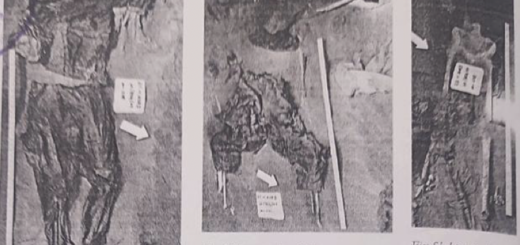Sri Lanka & China: A Bond Forged in Trust, not Treachery

On the 98th anniversary of the founding of the People’s Liberation Army (PLA), the Chinese Embassy in Colombo delivered more than a message of military celebration — it reaffirmed a growing truth in Sri Lanka’s foreign policy: China is a friend who has stood with us — quietly, powerfully, and respectfully.
A Force that Heals, not Harms
While some nations arm proxies and destabilize neighbors to assert control, China sends hospital ships — like the Peace Ark, which treated over 5,000 Sri Lankans, performed surgeries, and extended the hand of healing. That is not just military diplomacy — that is humanitarian solidarity.
India, in contrast, has left behind a bitter trail: from training Tamil militants in the 1980s to meddling in Sri Lanka’s internal affairs under the guise of “regional stability,” often enforcing its will through covert operations, forced deals, and political interference.
Respectful Partnership vs Strategic Pressure
The PLA’s modernization is not about dominance but capacity-building. As the Chinese envoy stated, China builds no alliances to threaten, targets no third country, and seeks no confrontation. It offers confidence without coercion — unlike India’s “Neighborhood First” policy that often means “India First, neighbors later.”
Sri Lanka has seen how India weaponizes trade, diplomacy, and debt — through infrastructure-airport-harbor-port deals, political manipulation, and acting as a gatekeeper to Western powers. These are not claims, but facts India cannot deny.
In contrast, China provides military training, humanitarian support, cultural solidarity and consistently defends Sri Lanka’s sovereignty on international platforms like the Geneva Human Rights Council. No conditions. No lectures. Just solidarity.
Two Neighbors, Two Approaches
China and India represent two fundamentally different foreign policy models. One respects Sri Lanka’s independence. The other seeks to influence it.
Where China’s ambassador fosters partnership and trust, India’s engagement often feels like coercion disguised as cooperation. This distinction is vital: Sri Lanka must choose friends based on mutual respect and reliability, not mere geography.
A Consistent Diplomatic Ethic
Under Ambassador Qi Zhenhong, the Chinese Embassy has deepened these time-tested ties — from humanitarian aid and technical training to respectful defense cooperation. In a region where some diplomats act like proconsuls, China’s representative has behaved like a true partner, not a puppet master.
History with India: Respect must be Mutual
Sri Lanka acknowledges its deep and ancient cultural, religious, and economic ties with India — bonds we continue to respect & strengthen. Sri Lanka has never taken action that threatens India’s security. Yet, India has repeatedly undermined Sri Lanka’s sovereignty — backing separatism, manipulating internal politics, and seeking dominance rather than friendship.
Respect must be mutual. Friendship cannot be one-sided or coerced.
This is not an attack on India, nor a blind embrace of any global power. It is a sober reflection on how Sri Lanka has been treated — and how it deserves to be treated. We value our civilizational ties with India, but friendship must never become dominance. Nor is this blind praise of China; we judge all nations by their conduct. In diplomacy, proximity is not loyalty, and distance is not distrust.
Our guiding principle is simple: we stand with those who respect our sovereignty — not those who compromise it.
Critics speak of “debt traps” — but forget who truly dictated terms, who benefited from rushed deals, and who pressured Sri Lanka in its moments of weakness. Unlike others, China has never demanded policy in return for aid. That is the real difference.
China’s higher moral ground in Diplomacy
Unlike certain regional powers that treat Sri Lanka as a geopolitical playground — arming insurgents, imposing political solutions, and dictating terms — China has consistently demonstrated principled diplomacy. It never exploited Sri Lanka’s vulnerabilities or used proximity as pressure.’
While others rely on surveillance, backdoor deals, and regime manipulation, China has shown that true friendship respects sovereignty. It does not subvert it.
This ethos is reflected in the actions of its present envoy and the strength of bilateral ties.
Sadly, Sri Lanka’s political leadership has often failed to see this difference — or been too compromised to respond with equal dignity and clarity.
A Shared Vision for a Peaceful Asia
President Xi’s vision of a shared future for humanity, rooted in peace and cooperation, aligns with Sri Lanka’s hopes for stability after decades of foreign interference.
China does not demand allegiance — it offers partnership.
In contrast, India’s record is full of double standards: preaching peace while backing division, talking unity while meddling in regime changes abroad.
From Zheng He to Peace Ark — A Timeless Friendship
Centuries before modern diplomacy, Admiral Zheng He sailed peacefully to Sri Lanka. Today, the Peace Ark carries that legacy forward. From the pilgrimages of Monk Faxian to strategic cooperation today, China has never treated Sri Lanka as a backyard — only as friend.
Let us choose our Friends by their Deeds, Not Their Distance
It’s time Sri Lanka sees the difference clearly:
- One neighbor uses proximity to dominate.
- The other uses friendship to empower.
With China, we built ports. With India, we nearly lost them.
China healed. India armed.
China helped end terrorism. India enabled it.
Let history judge not who claimed to help — but who truly did.
As the Chinese envoy rightly said: “History is like a mirror, seeing the road ahead.”
For Sri Lanka, that road must be walked with true friends — not false allies.
Shenali D Waduge
Political Analyst







